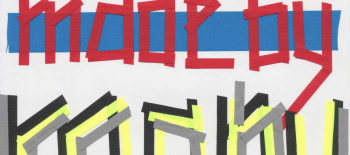For the second episode of the #PolishCultureKatchUp series we take you back to the first decades of 20th century Poland, the golden age of Polish music.
Katy Carr, an award winning British recording artist with Polish roots, is truly an ambassador of Polish history in Great Britain. She shared with us six beautiful Polish songs, mainly from the interwar period, recorded in the gorgeous All Hallows Church in Camden.
Today we’re sharing three songs, keeping three more for a bit later in our #PolishCultureKatchUp series. So if you’re a fan of Katy, like we are, keep an eye for more to come in a couple of weeks!
Miłość ci wszystko wybaczy – Love will forgive everything
The song was written in 1933 by the Polish Jewish composer Henryk Wars and Julian Tuwim.
Hanka Ordonowna was one of the icons of Polish stage, cinema, music and culture.
During WWII The Germans arrested, tortured and brutalised her and sent her to the notorious Pawiak prison in Warsaw. Luckily her husband had ‘connections’ and had her removed. Afterwards she made her way to Wilno where she continued performing until her arrest by the NKVD who transported her for hard labour in Uzbekistan.
Due to the Sikorski – Majski Agreement of 1941 she was given passage to join other Polish civilians in India and Beirut. Her body had been severely damaged from the forced labour camps deep in Stalin’s USSR and she passed away from tuberculosis in 1950.
Ordonowna had a passion to help protect the orphans from the Polish civilians who had died in the Gulags across the USSR. She set up an orphanage and wrote a book on the topic
Her contribution to Poland went far deeper than singing. She was not only a genius but had the heart of an angel.
Her ashes lie in Powązki Cemetery in Warsaw. Please visit her grave and lay a flower for one of Poland’s greatest daughters.
O mój rozmarynie – Oh my Rosemary
The song tells the story of a boy becoming a soldier. This song was one of the most popular Polish songs during WWI Poland and the Polish-Soviet War (1919-1921).
The lyrics are a variation of folksongs of unknown authorship, the most common version of the war time has been attributed to poet Edward Słoński with another poet credited with partial authorship Wacław Denhoff-Czarnocki. Music has been composed by Zygmunt Pomarański, all three of them were members of the Polish Legions in World War I.
Polonia
The song was written by Katy Carr and released in her latest, 5th studio album, entitled ‘Polonia’, find out more about the inspiration for it below.
In 1915 Sir Edward Elgar presented and conducted the symphonic prelude ‘Polonia’ in London intended to benefit the Polish Victims Relief Fund. Musically inspired by traditional Polish songs including ‘Poland Is Not Yet Lost’ (The Polish National Anthem) and works by Chopin, Elgar dedicated ‘Polonia’ to his friend the Polish pianist, composer, political activist and later Prime Minister of Poland Ignacy Paderewski.
The Order of Polonia Restituta (Order of the Rebirth of Poland) is one of Poland’s highest Orders and is awarded for extraordinary, distinguished service and outstanding achievements to both civilians and soldiers, as well as to foreigners.



